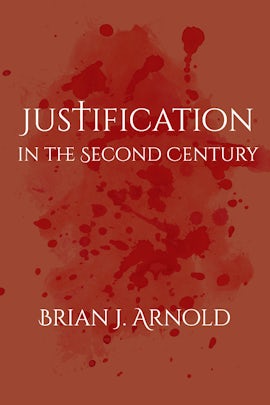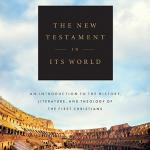Justification in the Second Century.
Waco, TX: Baylor University Press, 2018.
Available at Baylor Uni Press.
For some reason, at ETS and SBL, random people sometimes just give me books, usually their book. To be honest, I might browse them or flick through them, but I don’t always read them. At SBL I bumped into Brian Arnold (Phoenix Seminary) who gave me a copy of his published PhD thesis on justification in the second century. I’m very glad he did because it is a very interesting read.
This book shows, quite definitively, that Paul was not captive to heretics and Gnostics in the second century; it ably disproves the idea that a forensic view of justification by faith alone does not have much traction in the early church fathers; and it scorches the earth on T.F. Torrance’s thesis that the apostolic fathers departed from the pure Pauline notion of grace.
There are great discussions of texts from Ignatius of Antioch, 1 Clement, Diognetus, Odes of Solomon, and Justin Martyr. Arnold highlights some of the ambiguities and complexities of the text, it not necessarily raining Paul, but I think he successfully proves that “there was continuity between Paul’s teaching on justification by faith in the first century and the reception of this doctrine by Paul’s immediate successors in the second century.” I would quibble over a few things, I don’t think Diog. 9 gives a clear articulation of imputation, at best it might be implied. And in some cases I wonder if justification language is strictly forensic or if pertains to something broader like rectification with connotations of declaring and making righteous, I’m just not convinced that the church fathers were frightened of telescoping what we would call justification and sanctification. But that’s for another day.
I think Brian Arnold’s book on justification in the second century, along with Matt Thomas’s book on works of the law in the second century, are a great couple of volumes to read together, thoroughly recommended for anyone interested in Paul, Pauline reception, and development of early Christianity. Definitely worth putting on your “to read” list.













